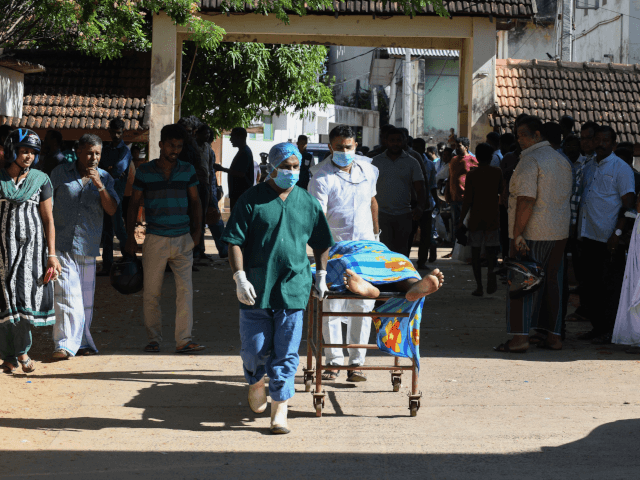Those 207 churchgoers, and others, who were killed in the terrorist attacks in Sri Lanka, confronted, in their last moments on this earth, a threat greater than climate change.
So what can the rest of us make of this terrible event—this hard-to-comprehend tragedy? Fortunately, Christians have a great resource to help them through such times: the Bible. In First Thessalonians 4:13-4, the Apostle Paul addresses the problem of grief; he offers comfort to the assembled believers, reminding them that the faithful who sleep in death will awake in life, basking forever in the glowing presence of God:
We want you to be quite certain, brothers, about those who have fallen asleep, to make sure that you do not grieve for them, as others do who have no hope. We believe that Jesus died and rose again, and that in the same way God will bring with him those who have fallen asleep in Jesus.
To some, these words will be no comfort. To others, they will mean great comfort—that’s the gift of faith.
Or, one should say, that’s the gift of the Christian faith, and of all other faiths that offer the promise of a transcendent destiny for each human soul.
There are, of course, other kinds of faith. For instance, there are the Greens, and what they believe. All over the world—albeit mostly in the Western Europe and North America—the Greens proclaim their credo: The end is near. As Rep. Alexandria Ocasio-Cortez said on January 22, “The world is going to end in 12 years if we don’t address climate change.” So there we have it: a profession of faith.
Interestingly, even as the bombs were going off in Sri Lanka, protesters in London, spearheaded by the actress Emma Thompson, were staging an “extinction rebellion.” That is, they were rebelling against the supposed deadly threat of climate change, as opposed to the more obvious deadly threat of terrorism.
Happily, nobody’s life was extinguished at that Green protest, perhaps because the London police were on hand, protecting protesters and bystanders alike.
Speaking of the police, we should observe that in terrible moments, it’s usually the first responders who show the most courage; that is, they are the ones who go running toward the trouble, when the normal human instinct is to go running away.
And because all cultures admire courage and sacrifice, it’s little wonder that these first responders around the world tend to emerge as popular icons, as trusted bulwarks of public safety. That is, so long as a society needs protection from the forces of chaos—be they terroristic, or merely criminal—the men and women who embody that protection will be regarded as heroes, as role models, and even, sometimes, as political leaders. After all, the words “law and order” translate easily into any language.
So yes, we must grieve for those who were killed in Sri Lanka—and be duly reminded that the threat of terror is, in the most literal sense, omnipresent.
Yet even in terrible times, those who put their faith in God have a kind of armor. Moreover, those who put another kind of faith in law and order have a second kind of armor.
To be doubly armored is a good thing. And that’s why most people are conservative, and always will be.

COMMENTS
Please let us know if you're having issues with commenting.